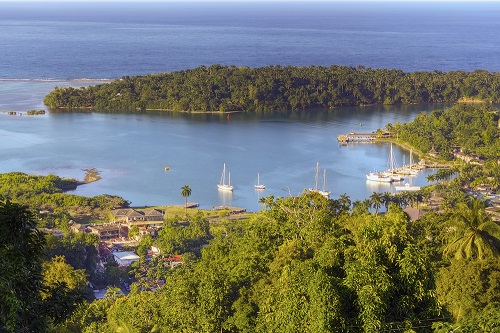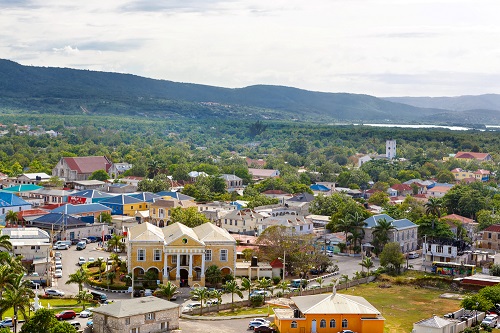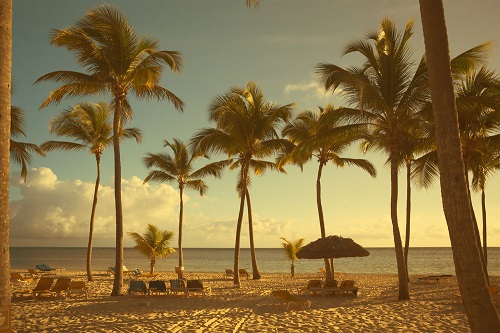What quality of healthcare you receive in Jamaica will depend on whether you access the public or the private sector. Overall, however, the standard of healthcare on the island does not yet compare to that in more developed nations. As a result, many expats opt for private health cover, or even to be treated away from the island entirely. They often choose to fly into hospitals in Florida if they need more than basic treatment. We will evaluate the standard of healthcare below.
Public healthcare in Jamaica
The World Health Organisation (WHO) reports that Jamaica ranks 53rd globally, when it comes to the effectiveness of its healthcare system. The Jamaican government currently intends to put more of its GDP into healthcare, as the system requires further investment and development.
Life expectancy in Jamaica is currently 74.5 years, which means the country ranks in 123rd position globally. Men live an average of 72.7 years, while women live an average of 76.5 years. In 2018, the infant mortality rate in Jamaica was at about 12.4 deaths per 1,000 live births. For every 2,000 people, there is around one doctor, which is low on a global scale.
The Jamaican Ministry of Health reports that non-communicable diseases (NCDs) and injuries form a major public health burden in Jamaica. Together, they are also the leading cause of death. In 2015, around seven in every 10 Jamaicans died from cancer, cardiovascular disease, diabetes or respiratory disease. Thus, the main aims of the Non-communicable Disease Unit are as follows:
- Tracking the disease burden and utilising the data to guide policies and programmes
- Reducing exposure of Jamaicans to the common risk factors for non-communicable diseases and injuries
- Strengthening healthcare systems for people with non-communicable diseases

A five-year plan was implemented from 2013, covering:
- Cardiovascular diseases
- Cancer
- Chronic respiratory diseases
- Diabetes
- Sickle cell disease
- Mental health
- Injuries
The 2013 UNAIDS Report on the global AIDS epidemic estimated that around 28,000 adults aged 15 or over in Jamaica were living with HIV. The percentage was estimated at around 1.7% of the adult population, compared to a percentage of adults in the UK of around 0.2%.
Jamaica has a form of national insurance. Healthcare is free at the point of delivery to citizens and residents using the public system, via government-run clinics. However, the system suffers from a number of problems, including:
- Long waiting times
- A lack of a proper appointments system
- Limited medical equipment (there have been some horror stories about patients having to buy their own equipment before they can have an operation, for example)
- Limited specialist care
- Difficulty in obtaining prescriptions
- Limited stocks of medication in pharmacies (so you may not be able to get your prescribed medication, even if you do have a prescription)
- Medical treatment can be expensive, with doctors and hospitals often expecting immediate cash payments for health services
These limitations drive many expats to take out private health insurance and/or to travel elsewhere for anything beyond basic primary care treatment. Florida is a relatively close and popular choice.
Nonetheless, the standard of medical personnel is reasonably good. The Jamaica Medical Council keeps an updated medical register of all medical practitioners licensed to practice on the island. This helps patients to distinguish between qualified and unqualified practitioners. No doctor is regarded as legally qualified to practice medicine in Jamaica unless they are listed on the register. They must also be in possession of a current practicing certificate.

Applications for registration include provisional and locum provisional registrations for newly qualified doctors or doctors who require a recognised period prior to being allowed to take the Caribbean Association of Medical Councils examination. Temporary registration is also given to practitioners whose qualifications are not acceptable for full registration and whose practices must be supervised by their regional medical officers.
The biggest and most modern hospitals are in Montego Bay and Kingston. These are of a reasonable standard when it comes to most basic healthcare. The island has the University Hospital of the West Indies, 24 public hospitals, and 10 private facilities, as well as primary healthcare delivered through a network of clinics and regional centres.
Private healthcare in Jamaica
The island has a number of private clinics. However, the UK government notes that some of these may not be of as high a standard as British and American citizens are accustomed to. Even so, most expats resident in Jamaica access private healthcare. They report that it is often of a good quality, with trustworthy doctors. Note that many expats take out policies that have a medical evacuation clause.
Jamaica has a developing medical tourism sector, with the Jamaica Promotions Corporation (JAMPRO) highlighting the opportunities available for local medical practitioners and investors. They report that this sector has evolved organically in Jamaica in recent years. It has attracted over $15 million in foreign investments through the Spanish Group, Hospiten, as well as developments such as G West in Montego Bay. Currently, a few patients visit from St Lucia and the Caymans, but increasing numbers of Jamaicans travel to the Caymans or the USA for healthcare. Those with an interest in medical tourism are seeking to redress this balance.
The government is trying to attract new medical investors, in an effort to establish Jamaica as a medical destination within the next five years. Their strategy has projected a minimum of 15,000 medical and residential care patients and an annual income of US$125 million by 2020.
JAMPRO is also actively seeking investments, and it says it can advise start-up facilities on their first steps. They are depicting medical tourism as a lucrative option for local practitioners who wish to expand their existing practices. Expats report that some doctors in private clinics have set up separate practices of their own, thus expanding the range of private provision.
However, experts note that the infrastructure in Jamaica needs to be improved, and the incidence of violent crime needs to be tackled, before serious investors are likely to risk investing in medical tourism there.

